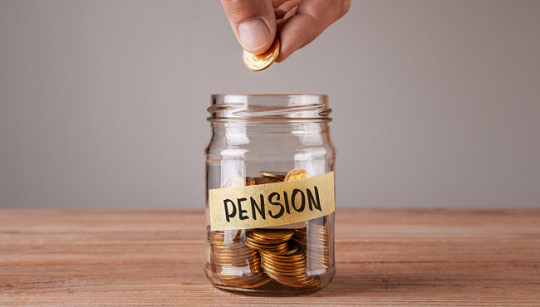Divorce and Pensions: 5 Things you Need to Know

Divorce affects not only the emotional wellbeing of the individuals involved but also brings with it significant financial considerations. Pensions often represent one of the largest assets in a marriage, sometimes even exceeding the value of the family home. However, pensions are often overlooked or misunderstood during divorce proceedings, which typically leaves one party at a financial disadvantage in the future. Here at RDC, our aim is to provide some essential guidance on managing pensions effectively during a divorce. So, here are five critical things to keep in mind when navigating divorce and pensions.
Pensions are Marital Assets and Can Be Split
Pensions are generally regarded as marital assets and are subject to division in the same way as other assets like property, savings, and investments. Regardless of whether the pension was solely contributed to by one partner, it is usually included in the matrimonial pot, particularly if contributions were made during the marriage. Pensions can be complex assets to divide, but they hold significant value. Ignoring them could lead to a less-than-fair settlement.
In order to achieve a fair financial settlement, it’s essential to know the total value of both parties’ pensions. This is often referred to as the “Cash Equivalent Transfer Value” (CETV). However, it’s important to be aware that the CETV does not always reflect the actual value the pension may hold for the recipient, particularly for defined benefit pensions, which can be difficult to evaluate accurately. Speaking to a financial expert can provide clarity on the actual value of your pension, ensuring an equitable division.
Understand the Different Types of Pension Orders
In the UK, there are three main types of court orders that can be used to divide pensions in divorce. Pension Sharing Orders allows for the pension to be split at the time of divorce and assigns a portion of one spouse’s pension to the other, creating two separate pension pots. This is often the preferred approach as it provides a clean break, with each party then having control over their respective pensions.
Pension offsetting involves offsetting the value of the pension against other assets. For example, one party might keep a greater share of the pension, while the other retains a larger share of the family home. This can be beneficial for those who wish to keep their pensions intact or avoid dealing with pension complications. However, offsetting doesn’t create a future income stream for the spouse without the pension, which could be a drawback in some situations.
Pension Attachment Orders (known as "pension earmarking") is less commonly used and requires one spouse’s pension provider to pay a portion of the pension benefits directly to the ex-spouse when it is drawn. However, it does not offer a clean break as payments only start when the pension-holding spouse retires. Furthermore, if the pension holder passes away before retirement, the ex-spouse may receive nothing, which is a significant risk.
Each option has its advantages and drawbacks, depending on the circumstances. Consulting a solicitor can help you decide which option best suits your financial goals and future security.
Tax Implications
When dividing pensions in a divorce, it’s crucial to be aware of the potential tax implications. While pensions can be shared or divided, it’s worth noting that tax liabilities may still apply, depending on how you choose to access your pension funds.
For example, if you decide to withdraw part of your pension as a lump sum, you could face income tax liabilities. For this reason, working with a financial adviser who understands the tax implications of your pension decisions can help prevent any unexpected tax burdens. They can also guide you in choosing the most tax-efficient methods to divide and manage your pension assets during and after your divorce.
State Pensions and Divorce
Many people overlook the state pension during divorce proceedings, but it can also play a role in your future financial wellbeing. In the UK, the basic state pension cannot be shared between spouses in a divorce, but you may be able to use your ex-spouse’s National Insurance contributions record if you do not qualify for a full basic state pension on your own.
Additionally, for those eligible, the new state pension, introduced in April 2016, operates under slightly different rules. While it cannot be divided like a private pension, it’s worth understanding your entitlements, especially if one spouse was the primary income earner, as this may affect your state pension income after divorce. This can be a complex area, so consider speaking with a solicitor to understand your state pension rights and what steps you may need to take to secure your entitlements.
Seeking Professional Advice
Navigating pensions during a divorce can be complicated and mistakes can be costly. Pension values, tax implications, and personal financial needs vary widely, therefore it’s essential to work with professionals who can help you understand your options fully and make informed decisions.
If you are currently going through a divorce or separation, please don't hesitate to reach out to the team at RDC for expert guidance and support. Call RDC Solicitors today on Bingley 01274 723858, Ilkley 01943 601173 or Bradford 01274 735511.


